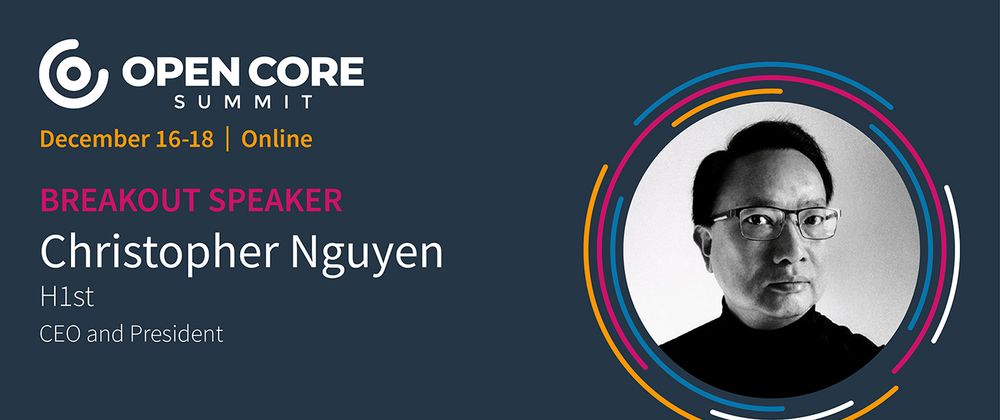Christopher Nguyen is the creator of the Human-First AI (H1st) open-source project, which is backed by COSS company Aitomatic, Inc. After his company Arimo, Inc. was acquired by Panasonic in 2017, Christopher led his team to successfully implement real-world, industrial-AI (manufacturing, avionics, robotics, energy, and automotive). He has served as engineering director of Google Apps and co-founded three successful startups. As a professor, Christopher co-founded the Computer Engineering program at HKUST. He earned his undergraduate degree from the University of California-Berkeley summa cum laude, and a PhD from Stanford.
Relevant Links
LinkedIn - Twitter
Christopher will share how his team has arrived at such a platform, Human-First AI, to successfully build solutions at a global Industrial IoT giant, Panasonic
Can you tell us about your early background, and your career that led into you being an entrepreneur? - 0:13
Much of your work seems centered around machine learning and artificial intelligence. What do you think the biggest misconceptions around ML/AI are? Perhaps things that have held back industry progress? - 1:06
(JJ relates Christopher’s response around misundesrtandings of AI bias to misunderstanding of bias/humanity’s role in open source). Is that similar to the thought process that you’re describing? - 4:06
What led to the founding of Arimo in 2012? Arimo joined Panasonic a few years ago, but what was the Arimo journey like? I’m asking that to sort of segway into what you’re working on now and what’s most interesting these days. - 6:24
What have you observed as the biggest changes in vision or conclusions driving what you’re working on today, in terms of joining Panasoinc and serving this diverse ecosystem in Panasonic’s broader marketplace? - 10:55
Tell us about the newest initiative you launched recently, the H1st Project. What led to creating H1st? Can you share an introduction, definition, and scope and vision for the project? - 13:04
Tell us about what companies should think about in terms of changing their mental model, and a mental shift in understanding how to industrialize AI with different use cases that H1st is proposing? - 18:01
There’s this conversation of supervised and unsupervised machine learning. Is this paradigm you’re describing, where humans provide their own value-added inferencing from their own empirical or historical knowledge, a form of supervised AI? How do you think through those two? - 22:38
Concluding remarks - 27:37
Share your questions and comments below!



Top comments (0)